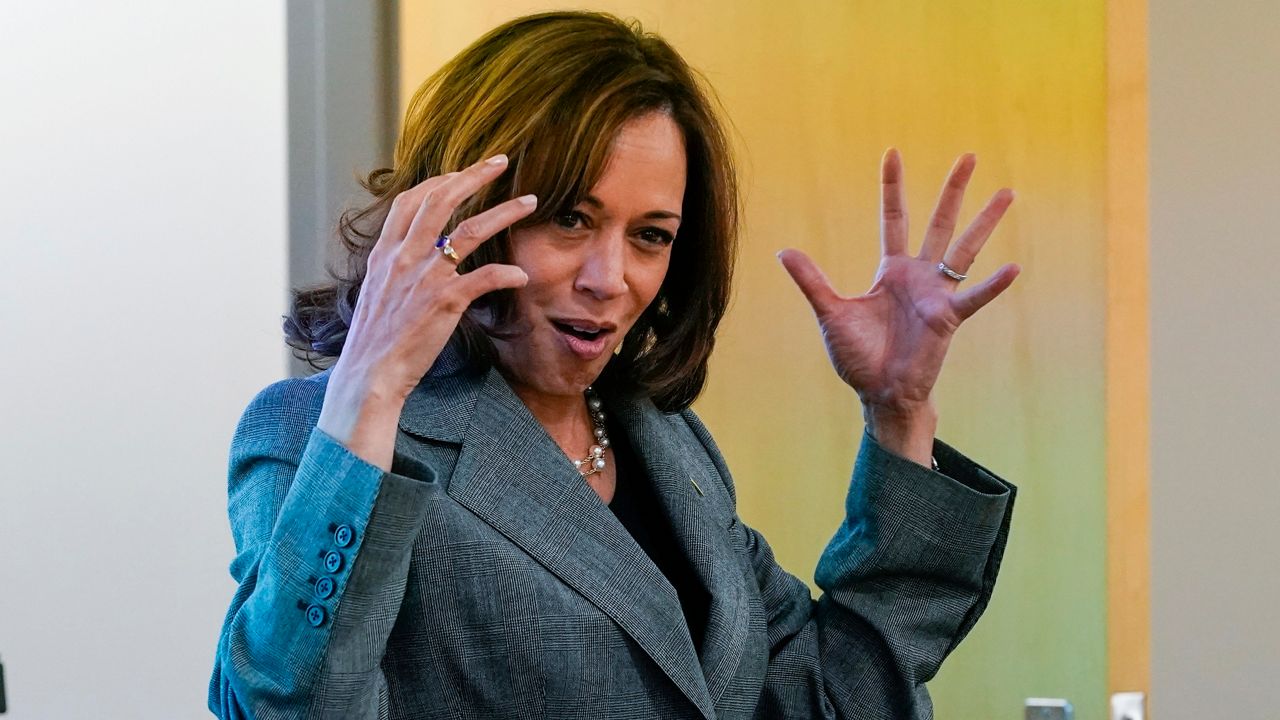Vice President Kamala Harris traveled to Wisconsin on Thursday to speak at the Democratic Attorneys General Association Conference, delineating the many responsibilities beholden to the office and telling those present they are “fighting on the front lines to defend our rights.”
It is a position Harris knows well, having served as attorney general of California from 2011 to 2017 before her election to the U.S. Senate.
In many states, the attorney general serves not only as the chief legal officer, but also as the top law enforcement official. This year, over two dozen states have races for attorney general.
“As attorneys general you share a fundamental belief in the principles of fairness, equality, and justice. And every day you fight for those ideals,” Harris said to those assembled at the Pfister Hotel in Milwaukee. “Your work makes real the promise of America in so many ways and in the lives of so many people. And as I said that cannot be more true than it is today when so much is at stake. At this moment in our nation, some of our most fundamental rights are under assault.”
One such freedom, Harris stressed, is the right to access a safe abortion. The federal right to an abortion was scuttled by the Supreme Court in late June when it effectively sent the law back to the states, meaning attorneys general have a larger say than ever before – or at least since 1973 when Roe v. Wade was initially decided – on the issue of reproductive health.
Typically, the decision to prosecute a doctor or a an individual for performing or receiving an abortion would rest with local law officials – namely, district attorneys and prosecutors. Some attorneys general, however, will have more authority in levying criminal charges or punishments.
In Texas, for example, a so-called trigger law went into effect on Aug. 25 outlawing all abortions – with no exceptions for rape or incest – beginning at the moment of conception. It includes limited exceptions if the life of the mother is at stake, or if there is risk of “substantial impairment of major bodily function.”
The law also allows Texas Attorney General Ken Paxton to go over the heads of local attorneys to target abortion providers or other organizations providing funds for the procedure. Should an “unborn child” die as a result of an abortion, doctors who perform the procedure could face a first-degree felony, punishable by up to a $100,000 fine and life in prison – which Paxton has also said he plans to enforce.
But the opposite is also true for many Democratic attorneys general, Harris said Thursday, lauding the steps taken in a number of states to protect access to abortion.
“So as the chief legal officer of your state, you – because I've been watching you – are bravely defending reproductive freedom. I met with many of you in my office at the White House, and we discussed the innovative strategies that you have used to defend women's reproductive freedom,” Harris told those in attendance.
One such example cited by the vice president came from the Badger State, where Attorney General Josh Kaul and Gov. Tony Evers have mounted a challenge to the state law that bans nearly all abortions, with no exceptions for rape and incest.
The law outlawing abortions in Wisconsin was passed in 1849, but the ban hasn't been enforced since the Roe v. Wade decision in 1973.
“With the limited resources every attorney general has, our friend here has to use his resources to fight a ban that was passed in 1849, before women even had a right to vote, and somebody is trying to push the legitimacy of that law and he has to fight against it,” Harris said, saying to Kaul directly: “Josh, our administration has your back.”
And in Wisconsin, at least, polls show the public widely supports a new law, though to varying degrees. An exclusive Spectrum News/Siena College Poll showed 72% of respondents in Wisconsin wanted to do away with the 1849-era statute, with around 37% of likely Wisconsin voters saying there should be some exceptions in the law for instances of rape, incest and the life of the mother.
But reproductive health is far from the only right on the ballot this November, Harris told the attorneys general on Thursday, pointing to ongoing fights in Congress over codifying same-sex marriage into law, passing civil rights and voting reform and protecting electoral security.
“Today, our nation faces many threats to our rights and our freedoms. And we must stand united to uphold the sacred oath,” Harris said. “We have each taken to protect the people of our nation to support and defend these foundational principles that are now at stake and to build a more just, more safe and more equitable future for all people. Together, we believe in the promise of our nation.”



